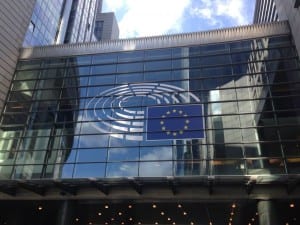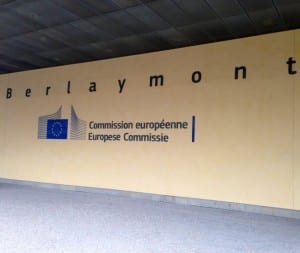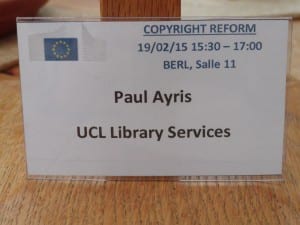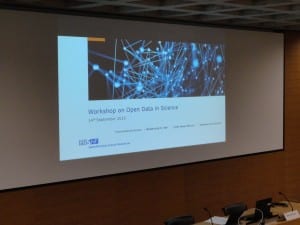The Director’s View: EU Referendum and a Statement from BIS
By Paul Ayris, on 28 June 2016
Statement from Jo Johnson, Minister of State for Universities and Science
Following on from my posting of earlier today, I would like to share with you a Statement from Jo Johnson, Minister of State for Universities and Science, which addresses the issues which are of importance to UK universities going forward:
‘EU and international students make an important contribution to our world-class universities, and our European neighbours are among some of our closest research partners.
 There are obviously big discussions to be had with our European partners, and I look forward to working with the sector to ensure its voice is fully represented and that it continues to go from strength to strength.
There are obviously big discussions to be had with our European partners, and I look forward to working with the sector to ensure its voice is fully represented and that it continues to go from strength to strength.
EU students who are eligible under current rules to receive loans and grants from the Student Loans Company will continue to do so for courses they are currently enrolled on or about to start this coming year. The Master’s Loans launched today are also still available to eligible EU students. EU students will continue to receive funding for the duration of their courses. Information on the eligibility criteria, including residency rules, is available. The SLC have provided more information at ‘EU Nationals and Student Finance in England’
Further future funding arrangements with the EU will be determined as part of the UK’s discussions on its membership and we will provide what updates and clarity we can.
As the Prime Minister has stated, there will be no immediate changes following the EU Referendum, including in the circumstances of British citizens living in the EU, and European citizens living here. This includes those studying or working at UK universities.
For students, visitors, businesses and entrepreneurs who are already in the UK or who wish to come here, there will be no immediate change to our visa policies.
Erasmus+
The referendum result does not affect students studying in the EU, beneficiaries of Erasmus+ or those considering applying in 2017. The UK’s future access to the Erasmus+ programme will be determined as a part of wider discussions with the EU.
More broadly, existing UK students studying in the EU, and those looking to start in the next academic year, will continue to be subject to current arrangements.
Horizon 2020 research funding
The referendum result has no immediate effect on those applying to or participating in Horizon 2020. UK participants can continue to apply to the programme in the usual way. The future of UK access to European science funding will be a matter for future discussions. Government is determined to ensure that the UK continues to play a leading role in European and international research’
I hope this is helpful, and I will continue to share news with you as things develop.
Paul Ayris
Director of UCL Library Services
 Close
Close


 Provost
Provost 






